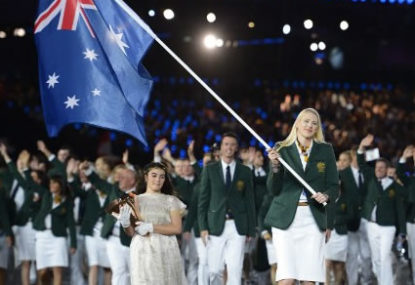Following the conclusion of what many consider the most successful Olympics in modern times in London 2012, attention now turns to Rio 2016, where the Olympic movement welcomes back two controversial sports into the fold.
Rio will see the return of golf and rugby (rugby sevens) into the Olympics, both sports having debuted in Paris 1900 with golf making just one more appearance at St. Louis 1904, while 15-a-side rugby last appeared in Paris 1924.
Their inclusion only fuels the intense debate over what constitutes an Olympic sport.
The IOC claims a sport must have youth appeal, universality, popularity, good governance, respect for athletes and respect for the Olympic values to be considered an Olympic sport, befitting the motto of “higher, faster, stronger”.
But such definitions can be applied very loosely with recent additions suggesting no clear direction for future Games’.
For example, golf, while undoubtedly an immensely popular sport worldwide, could be considered elitist that favours more wealthy nations.
And like tennis, its athletes have far more lucrative tournaments to regularly compete in that will take the shine of the Olympic competition.
Meanwhile, rugby is another sport like football, tennis and basketball where there is bigger professional international presence beyond its Olympic component, therefore detracting from its Olympic meaning.
Already there are a number of sports that could justifiably face the chop from the Olympics for a variety of reasons.
Equistrian and sailing rely too heavily horses and equipment respectively, potentially harming an athletes’ results while restricting participation to those who can afford such equipment. Rhythmic gymnastics and synchronised swimming hardly live up to the Olympic motto and aforementioned sports such as football, basketball, tennis and the incoming rugby sevens and golf don’t hold up their Olympic competitions as the grandest and most sought after prizes.
Basketball, for example, could follow football’s path by pushing for a dedicated international World Cup, with officials considering making the Olympics an under-23 tournament.
With their own international competitions, why should they double dip with an Olympic presence?
While it will never happen given the commercial interests that drive such decisions, there is a strong argument to be made for stripping the Olympics back to the core sports – aquatic (swimming, rowing, diving etc) and athletics.
Strength sports (boxing, weightlifting, wrestling) and the likes of archery, cycling, fencing, judo, shooting etc would fill out the fortnight.
The Olympics as it stands now is a convoluted, eclectic mix of sports crammed into too few days.
The result is sports that rely on the Olympics for that once every four-year boost, think archery, fencing, rowing and more, are increasingly buried.
This by not only athletics and aquatics but the growing number of team sports and big-name stars who make their name and fortunes elsewhere but use the Olympics for a further feather in their cap.
Consider the backlash against Olympic broadcasters from America to Australia relating to the lack of variety in their coverage.
The Olympics as it is now is an impossible event to cover given the exhausting number of events.
If only the sports that stand on their own two-feet outside of the Olympics or don’t befit what the Olympic movement stands for could make way and free up the Games. This is very unlikely, though.
The International Olympic Committee (IOC) will meet in Buenos Aires next year to vote on which sport will be added to the 2020 Olympic Games schedule.
In contention are baseball and softball, seeking re-entry after losing their Olympic spots post-2008, with karate, wushu, wakeboarding, squash, roller sports and sport climbing the other contenders.
Lacrosse and mixed martial arts have also put forward proposals to join the Games.
Which sports are more deserving of inclusion? Who knows anymore…





























































































